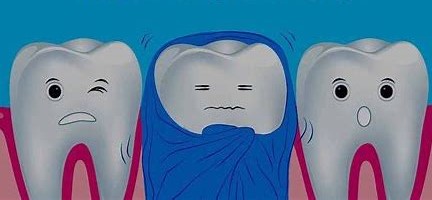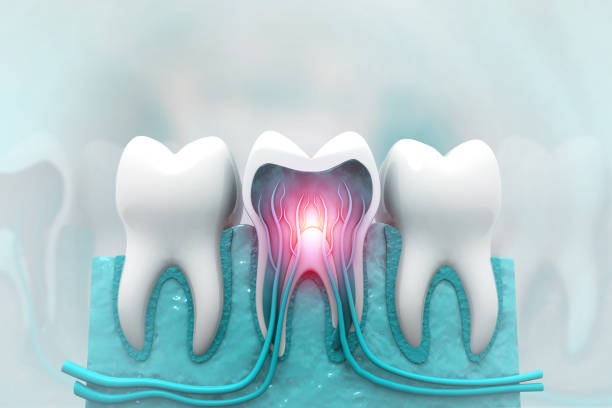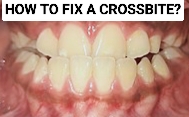Dentin hypersensitivity, also known as tooth sensitivity or sensitive teeth, is a common dental problem that affects millions of people worldwide. It’s characterized by a sharp, sudden pain in the teeth when exposed to certain stimuli, such as hot or cold drinks, sweet or acidic foods, or even cold air. Although tooth sensitivity is not a serious condition, it can be quite uncomfortable and affect a person’s quality of life. In this article, we’ll explore the causes, symptoms, and treatment options for dentin hypersensitivity.

Causes of Dentin Hypersensitivity
To understand tooth sensitivity, it’s essential to know the anatomy of the tooth. The tooth’s outer layer is composed of enamel, which is the hardest substance in the body. Beneath the enamel lies the dentin, which is made up of microscopic channels called tubules. The tubules contain tiny nerve endings that can be stimulated by external factors, causing pain.
There are several reasons why dentin hypersensitivity occurs. The most common causes include:
1. Brushing too hard: Overbrushing can wear down the enamel and expose the underlying dentin, leading to sensitivity.
2. Gum recession: Receding gums can expose the dentin and make the teeth more sensitive.
3. Tooth decay: Cavities can cause sensitivity when they reach the dentin layer.
4. Teeth grinding: Grinding or clenching the teeth can wear down the enamel and cause sensitivity.
5. Cracked teeth: Cracks in the teeth can expose the dentin and cause sensitivity.
6. Acidic foods and drinks: Consuming acidic foods and drinks can erode the enamel and expose the dentin, leading to sensitivity.
Symptoms
The main symptom of dentin hypersensitivity is a sudden, sharp pain in the teeth when exposed to certain stimuli, such as cold or hot drinks, sweet or acidic foods, or cold air. The pain is usually short-lived and can occur in one or several teeth.
Tooth sensitivity is a common dental problem that is characterized by discomfort or pain when the teeth are exposed to certain stimuli. Here are some of the most common symptoms of tooth sensitivity:
1. Sensitivity to hot or cold food and drinks: People with tooth sensitivity may experience pain or discomfort when they eat or drink hot or cold foods and beverages.
2. Pain when eating sour foods: Eating sour foods such as lemons or pickles can also trigger tooth sensitivity in some people.
3. Pain when brushing or flossing: Brushing or flossing can cause discomfort or pain in people with tooth sensitivity, especially if they brush too hard or use a hard-bristled toothbrush.
4. Pain or discomfort when breathing in cold air: Cold air can cause tooth sensitivity in some people, causing them to experience pain or discomfort when they breathe in cold air.
5. Pain or discomfort when biting down: Some people with tooth sensitivity may experience pain or discomfort when they bite down on hard foods, such as nuts or candy.
6. Tingling or burning sensations: Some people with tooth sensitivity may also experience a tingling or burning sensation in their teeth, even when they are not exposed to any stimuli.
If you are experiencing any of these symptoms, it is important to consult a dentist to determine the underlying cause of your tooth sensitivity and to receive proper treatment.


TREATMENT OF SENSITIVITY
The treatment of dentin hypersensitivity depends on the underlying cause. Some ways to reduce sensitivity include:
1. Desensitizing toothpaste and mouthwash:
Toothpaste formulated for sensitive teeth can help block the tubules and reduce sensitivity, including compounds such as strontium chloride, strontium acetate, arginin, calcium carbonate, hydroxyapetite and calcium phosphosilicate, potassium nitrate,ptassium chloride and potassium citrate.
2. Fluoride application:
Fluoride is a mineral that helps strengthen tooth enamel and reduce sensitivity. Your dentist may apply fluoride directly to the sensitive areas of your teeth to help reduce sensitivity.
3. Dental bonding:
Dental bonding is a procedure in which a tooth-colored resin material is applied to the affected teeth to protect the exposed dentin and reduce sensitivity.
4. Gum graft:
If receding gums are causing sensitivity, your dentist may recommend a gum graft to cover the exposed root surfaces and reduce sensitivity.
5. Root canal:
In severe cases of tooth sensitivity, your dentist may recommend a root canal to remove the pulp of the tooth and alleviate the sensitivity.
6. Lifestyle changes:
Making changes to your diet and oral hygiene habits can also help reduce tooth sensitivity. Avoid highly acidic foods and beverages, use a soft-bristled toothbrush, and brush and floss gently to avoid further damage to your teeth.
If you are experiencing tooth sensitivity, it is important to see a dentist to determine the cause and the appropriate treatment for your individual needs.
Preventing Dentin Hypersensitivity
Prevention is the key to avoiding dentin hypersensitivity. Some ways to prevent sensitivity include:
1. Brushing twice a day with a fluoride toothpaste.
2. Flossing daily.
3. Limiting the consumption of acidic foods and drinks.
4. Using a mouthguard.
5. Seeing a dentist for regular checkups and cleaning.
HOME REMEDIES FOR TOOTH SENSITIVITY
There are several home remedies that can help alleviate tooth sensitivity, although it is important to note that these remedies do not replace professional dental care but are supplementary. Here are some home remedies for sensitive teeth:
1. Saltwater rinse: Rinse your mouth with warm saltwater to help reduce inflammation and sensitivity.
2. Cloves: You can use cloves to numb the pain of sensitive teeth by placing a clove oil or whole spice on the affected area.
3. Green tea: Green tea contains antioxidants that can help reduce inflammation and tooth sensitivity. Swishing a warm cup of green tea in your mouth for a minute or two can help reduce sensitivity.
4. Oil pulling: Gently swishing coconut oil or sesame oil around your mouth for about 15-20 minutes, then spitting it out can help reduce inflammation and reduce sensitivity.
5. Honey and warm water: Simply mixing equal parts honey and warm water makes a home remedy that can help numb the pain of sensitive teeth. Rinse your mouth with the mixture for several minutes.
6. Baking soda: Baking soda is a natural abrasive that can help remove stains from teeth and reduce sensitivity. Mix baking soda with water to create a paste and brush your teeth with it.

While these home remedies may offer some relief, it is important to note that they do not replace professional dental care. If you are experiencing tooth sensitivity, it is recommended to see a dentist to determine the underlying cause and appropriate treatment.
CONCLUSION
Dentin hypersensitivity is a common dental problem that can cause discomfort and affect a person’s quality of life. Understanding the causes, symptoms, and treatments of sensitivity can help people take steps to prevent and manage it. Maintaining good oral hygiene, avoiding acidic foods and drinks, and seeing a dentist regularly are essential in preventing dentin hypersensitivity.
FAQs
1. What causes tooth sensitivity?
Tooth sensitivity can be caused by a variety of factors, including worn enamel, receding gums, tooth decay, gum disease, and grinding or clenching of teeth.
2. Is tooth sensitivity a common problem?
Yes, tooth sensitivity is a common dental problem that affects millions of people worldwide.
3. Can tooth sensitivity be prevented?
Yes, tooth sensitivity can be prevented by practicing good oral hygiene, using a soft-bristled toothbrush, avoiding acidic foods and drinks, and seeing a dentist regularly for check-ups and cleanings.
4. How is tooth sensitivity diagnosed?
To diagnose tooth sensitivity, your dentist will perform a thorough examination of your teeth and ask about your symptoms. They may also take x-rays to determine the underlying cause of your sensitivity.
5. What are the treatment options for tooth sensitivity?
The treatment of tooth sensitivity depends on the underlying cause of the problem. Treatment options may include desensitizing toothpaste, fluoride treatment, dental bonding, gum grafting, root canal, or lifestyle changes.
6. Can home remedies help alleviate tooth sensitivity?
Yes, home remedies such as saltwater rinse, cloves, green tea, oil pulling, honey and warm water, and baking soda can help alleviate tooth sensitivity. However, it is important to note that these remedies do not replace professional dental care.
7. Is tooth sensitivity a serious dental issue?
Tooth sensitivity can be a serious dental issue if left untreated, as it can increase the risk of tooth decay and gum disease. It is important to see a dentist if you are experiencing tooth sensitivity to determine the underlying cause and appropriate treatment.



